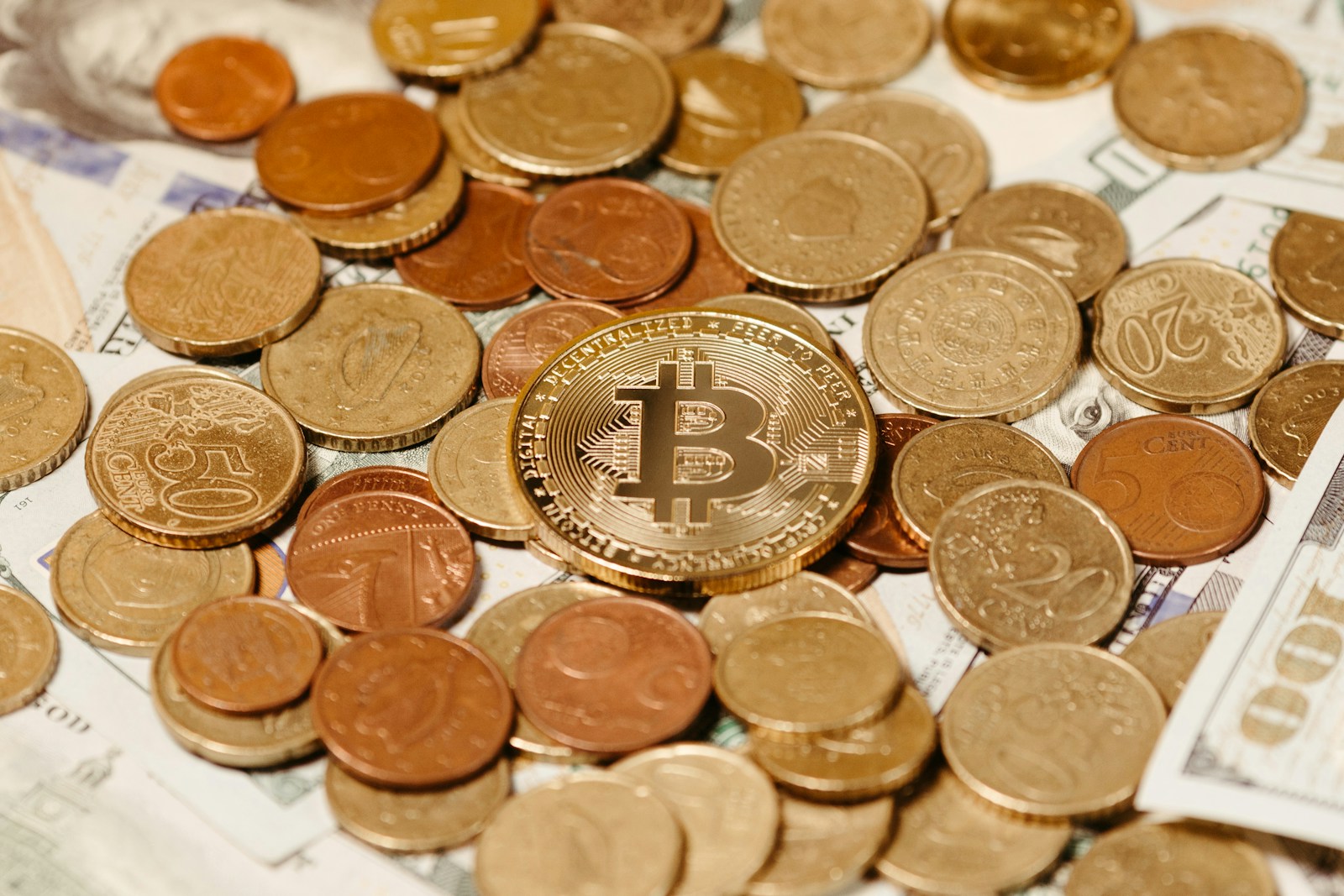As we step into 2025, the cryptocurrency market continues to evolve, becoming more accessible and secure for traders of all levels. With increasing institutional adoption, government scrutiny, and technological improvements, choosing the right crypto trading platform has never been more important. Whether you’re a beginner or a seasoned trader, having access to a secure, user-friendly, and feature-rich platform can significantly impact your profitability.
This blog post compares the Top 10 Crypto Trading Platforms of 2025, focusing on their features, security, fees, supported assets, and overall trading experience.
Why Choosing the Right Crypto Trading Platform Matters in 2025
In 2025, the crypto ecosystem has matured with advanced trading tools, enhanced security measures, and widespread regulation. However, not all platforms offer the same level of:
Security
Liquidity
Fees
Customer Support
Access to New Coins and Features
Choosing the wrong platform can expose you to high fees, hacks, or limited trading tools. That’s why we’ve compiled this comparison of the best options for secure and profitable crypto trading this year.
- Binance – Best Overall for Global Traders
Headquarters: Malta
Users: 130+ million
Trading Fees: 0.1% standard; lower with BNB
Security: Advanced cold storage, SAFU fund, 2FA
Why Binance Stands Out:
Binance remains the global leader due to its low fees, vast selection of cryptocurrencies (600+), and advanced trading tools. It offers spot, margin, and futures trading, and even crypto staking, loans, and an NFT marketplace.
Pros:
Extremely low fees
High liquidity
Wide range of trading pairs
Strong security history
Cons:
Regulatory issues in some countries
Complex interface for beginners
- Coinbase – Best for Beginners
Headquarters: USA
Users: 110+ million
Trading Fees: 0.5% to 1.5%
Security: FDIC insurance (USD), AES-256 encryption
Why Coinbase Is Ideal for Newbies:
Coinbase offers a clean, intuitive interface perfect for first-time investors. It’s regulated in the U.S., supports fiat-to-crypto trading, and provides educational resources through its “Learn and Earn” program.
Pros:
Regulated and insured
Easy to use
Strong educational tools
Supports major fiat currencies
Cons:
High fees on standard trades
Limited altcoin selection on the basic platform
- Kraken – Best for Security and Regulation
Headquarters: USA
Users: 9+ million
Trading Fees: 0.16% maker / 0.26% taker
Security: Cold storage, proof of reserves, 2FA
Why Security-Minded Traders Love Kraken:
Kraken is one of the most secure crypto exchanges in the world. It offers futures trading, staking, margin, and OTC desk services. With 24/7 live support, Kraken also scores high for customer service.
Pros:
Impeccable security track record
Regulated in multiple countries
Advanced trading tools
Cons:
Interface less friendly for beginners
Fewer coins than Binance or KuCoin
- Bybit – Best for Derivatives Trading
Headquarters: Dubai
Users: 15+ million
Trading Fees: 0.01% maker / 0.06% taker
Security: Multi-signature cold wallets, 2FA
Why Traders Choose Bybit for Futures:
Bybit has grown rapidly by offering a sleek UI and robust derivatives trading (up to 100x leverage). It also includes spot trading, copy trading, and a launchpad for new tokens.
Pros:
Low futures trading fees
Strong UI for mobile and desktop
Educational portal and testnet
Cons:
Not available in some countries
Still expanding regulatory compliance
- KuCoin – Best Altcoin Exchange
Headquarters: Seychelles
Users: 30+ million
Trading Fees: 0.1%
Security: Industry-standard encryption, insurance fund
Why Altcoin Enthusiasts Use KuCoin:
KuCoin supports over 700+ cryptocurrencies, making it ideal for altcoin investors and early adopters. The platform also offers trading bots, staking, NFTs, and margin trading.
Pros:
Huge coin selection
Trading bot integration
Competitive fees
Cons:
Limited fiat options
Less regulated than Coinbase or Kraken
- OKX – Best for Staking and Passive Income
Headquarters: Seychelles
Users: 20+ million
Trading Fees: 0.08% maker / 0.1% taker
Security: Proof-of-reserves, cold storage, anti-phishing codes
Why Passive Investors Choose OKX:
OKX stands out in 2025 for its Earn features—including DeFi staking, fixed income plans, and yield farming. It also offers derivatives, copy trading, and a user-friendly mobile app.
Pros:
Great passive income tools
High-volume liquidity
Advanced charting tools
Cons:
Limited fiat deposits
Verification process can be lengthy
- Bitget – Best for Copy Trading
Headquarters: Singapore
Users: 10+ million
Trading Fees: 0.02% maker / 0.06% taker
Security: 100% Proof of Reserves, cold storage
Why Bitget Works for Social Traders:
Bitget leads in copy trading, allowing users to mimic pro traders’ strategies. With low fees and a strong mobile app, it has become a favorite among new and intermediate users alike.
Pros:
Social trading features
Transparent proof-of-reserves
Simple UI with fast KYC
Cons:
Fewer spot assets than others
Less known than Binance or Coinbase
- Gemini – Best for Institutional Traders in the US
Headquarters: USA
Users: 5+ million
Trading Fees: 0.25%
Security: SOC-2 certified, insured wallet storage
Why Institutions Trust Gemini:
Gemini is regulated by the New York State Department of Financial Services (NYDFS) and offers top-tier custody solutions. It’s ideal for institutional and high-net-worth investors needing top security.
Pros:
Strong legal compliance
Gemini Earn and Wallet
USD-backed stablecoin (GUSD)
Cons:
High fees
Limited coin availability
- MEXC – Best for Low-Fee Altcoin Trading
Headquarters: Seychelles
Users: 10+ million
Trading Fees: 0% spot, 0.01% futures
Security: Multi-layered security protocols
Why MEXC Is Gaining Popularity:
MEXC offers zero-fee spot trading on many pairs and supports hundreds of new altcoins. Its advanced trading interface and frequent token launches attract high-volume traders.
Pros:
Zero-fee promotions
Fast KYC
Great mobile app
Cons:
Lower brand recognition
Limited fiat gateway options
- eToro – Best for Crypto + Stocks + ETFs
Headquarters: Israel
Users: 30+ million
Trading Fees: 1% on crypto trades
Security: Regulated in the EU, UK, Australia
Why eToro Stands Out:
eToro is ideal for diversified investors who want crypto exposure alongside stocks and ETFs. Its social trading feature also helps beginners learn by copying pro strategies.
Pros:
All-in-one investing platform
Regulated in multiple countries
Simple copy trading system
Cons:
High crypto trading fees
Limited advanced tools for pro traders
Features to Compare Before Choosing a Platform
When deciding which platform suits your goals in 2025, compare based on:
Feature Why It Matters
Security To avoid hacks, scams, or loss
Fees Lower costs = higher profits
Asset Variety Altcoins, DeFi tokens, NFTs
Trading Types Spot, futures, options, margin
Fiat Integration Easy deposit and withdrawal
Support & Interface Helps ease trading experience
Licensing & Regulation Legal protection and trust
Final Thoughts: Which Platform Is Right for You?
Here’s a quick breakdown based on your trading goals:
For Beginners: Coinbase or eToro
For Low Fees: Binance, MEXC
For Altcoins: KuCoin, MEXC
For Derivatives: Bybit, Bitget
For Regulation and Security: Kraken, Gemini
For Passive Income: OKX, Binance
In 2025, security, liquidity, and tools are key to trading profitably. Make sure to always do your own research (DYOR), enable 2FA, and never store large funds on exchanges for long.
FAQs
- Is crypto trading safe in 2025?
Yes, if you use regulated, secure platforms with features like cold storage, 2FA, and insurance coverage. - Which exchange has the lowest fees in 2025?
MEXC (0% spot), Binance (0.1%), and Bybit (low futures fees) lead in low-cost trading. - Can I trade crypto without KYC in 2025?
Some platforms allow limited access without KYC, but most require verification for higher limits and withdrawals.



